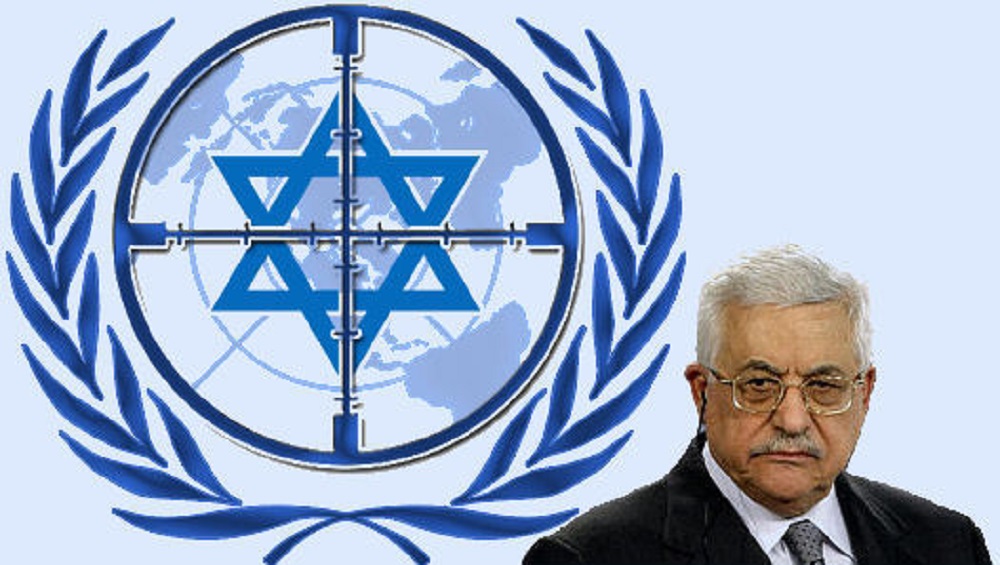When Dialogue becomes Dangerous
The recent meeting between former President Jimmy Carter and Hamas leader Khaled Mashaal in Damascus has once again highlighted the perils of negotiating with terrorists. Carter emerged from that meeting and declared that Hamas, under certain conditions, was prepared to recognize Israel. Like so many other na?ve idealists, he does not understand that Hamas was, is and remains an uncompromising jihadist organization bent on the conquest of its neighbor, regardless of what it says.
In March 2007, the Director of the Centre for Defense Studies at King’s College, Peter R. Neumann, laid out the essential premise for not negotiating with terrorists: “Democracies must never give in to violence, and terrorists must never be rewarded for using it. Negotiations give legitimacy to terrorists and their methods undermine actors who have pursued political change through peaceful means. Talks can destabilize the negotiating governments’ political systems and undercut international efforts to outlaw terrorism.”
Nevertheless, democratic governments routinely conduct secret negotiations with terrorists although they often achieve significantly different results. The question is why? In 1993, the Israeli government secretly negotiated the Oslo Accords with the Palestine Liberation Organization (PLO) – a decision the Israelis have long since come to regret. With jihadists ensconced on her northern, eastern and southern borders, Israel now faces an existential threat from all sides. The more concessions it makes, the greater the demands of its enemies. On the other hand, the nationalist IRA agreed to lay down its weapons, pledged to pursue its goals through the political process and was able to achieve an historic power-sharing agreement that replaced British rule in Northern Ireland, so there seems to be distinction between terrorists who seek to bomb their way to the negotiating table (like the IRA) and terrorists who are only interested in blowing up the table altogether (like the jihadists) for a grander purpose.
This distinction led Bruce Hoffman of Georgetown University and William Zartman of Johns Hopkins University to conclude that the goal and ideology of terrorist organizations should be the litmus test in determining their willingness to compromise – all of which leads to the secret negotiations currently underway between the US and Iran. In negotiating with the Iranians, we are negotiating with jihadists who have a religiously-inspired absolutist, even apocalyptic vision of the future, who have consistently lied about their nuclear enrichment program, who have threatened Israel with a second Holocaust (even as they denied the first) and who have made no secret of their global jihadist ambitions.
Twenty-five hundred years ago, Chinese General Sun Tsu wrote in The Art of War that you cannot defeat an enemy unless you understand its nature. Yet, many in our political echelon argue that we can reduce the level of violence and lessen the threat to our foreign interests by establishing a dialogue with jihadists. What is needed, we are told, is a better mix of diplomatic carrots and economic sticks and, as reasonable men, we will then be able to sit down and resolve our differences just as the Irish Catholics and Protestants did in Northern Ireland.
What’s missing here is any understanding of this enemy’s mindset and game plan. Jihadists justify murder in religious terms because they see the world populated by infidels who must be eradicated or subjugated. Their agenda is purely theocratic and absolute with not a scintilla of concern for the lives of non-believers anywhere. As such, negotiation with them is useless for there is nothing to negotiate.
Western diplomats are like children playing with fire because they fail to grasp that the Middle East is not Northern Ireland and this enemy is not the IRA. That means the likelihood of a compromise with Ahmedinejad in Tehran or any of his jihadist cronies in the Middle East will be about as effective as were negotiations with Adolf Hitler who, in 1938, told his General Staff after meeting with British Prime Minister Chamberlain – “Our enemies are little worms. I saw them at Munich.” Chamberlain’s belief that Hitler was a reasonable man who would accept a good deal when he saw it, failed to consider the ideology and global ambitions of the Third Reich.
Similarly, during the Iranian embassy crisis, Ayatollah Khomeini told his Revolutionary Guards that they had nothing to fear from America after the Embassy take-over, since President Carter’s only response to the hostage-taking was to impose ineffectual sanctions, an embargo on Iranian oil, a rescue mission that turned into a farce and to send his Secretary of State to Tehran to apologize for unspecified past transgressions. Khomeini’s response was to order the American flag to be painted at the entrance to airports, railway stations, ministries, factories, schools, hotels and bazaars so the faithful could trample it under their feet each day.
To jihadists, Western threats mean nothing without the fear that they will be removed from power by force if they continue to pursue their jihad. That’s why Hamas in Gaza is seeking a ceasefire with Israel and its leaders are in hiding. That’s why, in the aftermath of the U.S. invasions of Afghanistan and Iraq in 2003, Libyan dictator Muammar Qaddafi announced that he would dismantle his WMD programs. That’s why Tehran halted its nuclear weapons program in 2003 believing that they were next on the US “hit list” after Afghanistan and Iraq. But when the Iranians realized that American anti-war sentiment worked in their favor and that they could sap America’s fighting spirit in Iraq through attrition without fear of being overthrown, they re-started their conversion and uranium enrichment programs.
US and Western leaders must confront the reality that jihadism is not a “problem” to be resolved through roundtable discussions, negotiations or even sanctions. The Iranians and their Middle East proxies are not “reasonable people” in the classic Western sense. They are the vanguard of a religious crusade that threatens the continued progress of the American experiment in the Middle East and even the European Enlightenment. By seeking to accommodate their demands, by suggesting that regime change is no longer on our agenda, and by forcing Israel into making dangerous concessions to appease them, we have shown weakness.
For all these reasons, jihadists like Ahmedinejad and his Middle East surrogates are convinced that the West is a “paper tiger” and only prepared to impose ineffectual sanctions that Switzerland, Russia, China, Germany, Singapore, Malaysia, the United Kingdom and the United Arab Emirates are bypassing for purely economic reasons (according to the January 16, 2008 GAO Report).
Neither Jimmy Carter nor much of America’s political establishment understands that this enemy cannot be moderated and will never compromise on its ideological agenda. They can only be defeated as were the Nazis before them. And yet, we continue to place our faith in “dialogue” and an almost irrational belief that we can convince them to moderate their “views” by correcting “misunderstandings” and fashioning a deal – and that’s why the Iranians, the Syrians and the others are convinced that we are weak and destined to lose.
Jimmy Carter’s pointless journey to Damascus is symptomatic of a far greater malady in Western society – the embrace of a political culture that holds an unswerving devotion to “dialogue”; to the belief that a religious jihad can be moderated through improved communications, compromise and engagement. There is a reason why we should not engage these jihadists. It is because they are not interested in limited, nationalistic goals like the IRA. Theirs is a religious crusade aimed at conquest and submission and they are waging it on a global level even as we seek to reach out to them. We never learn from history.




